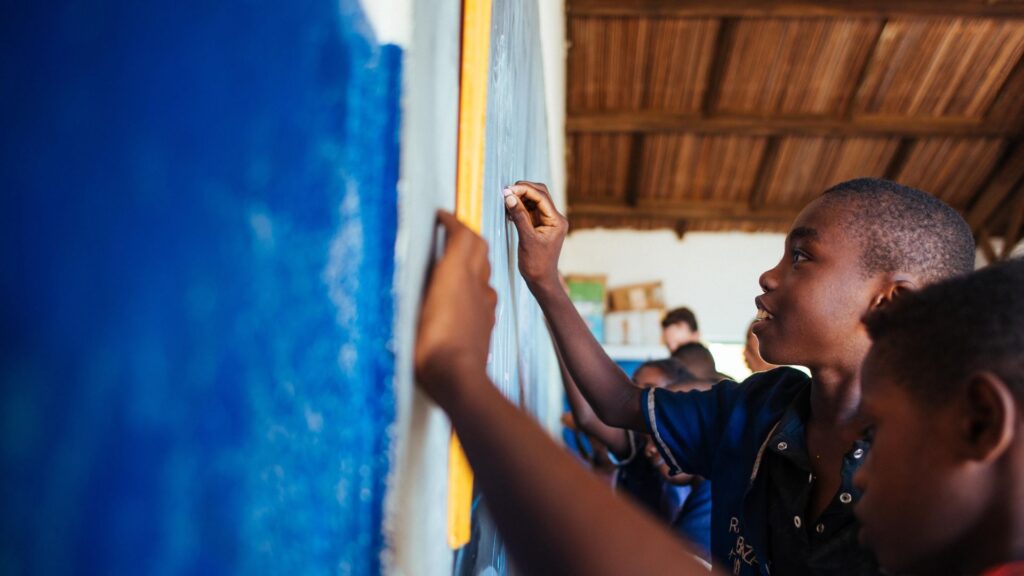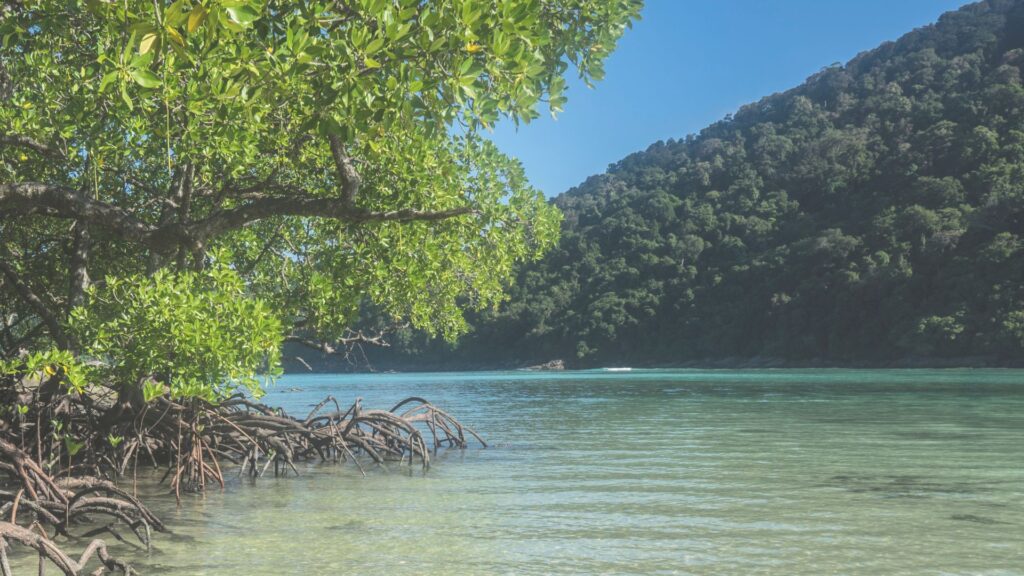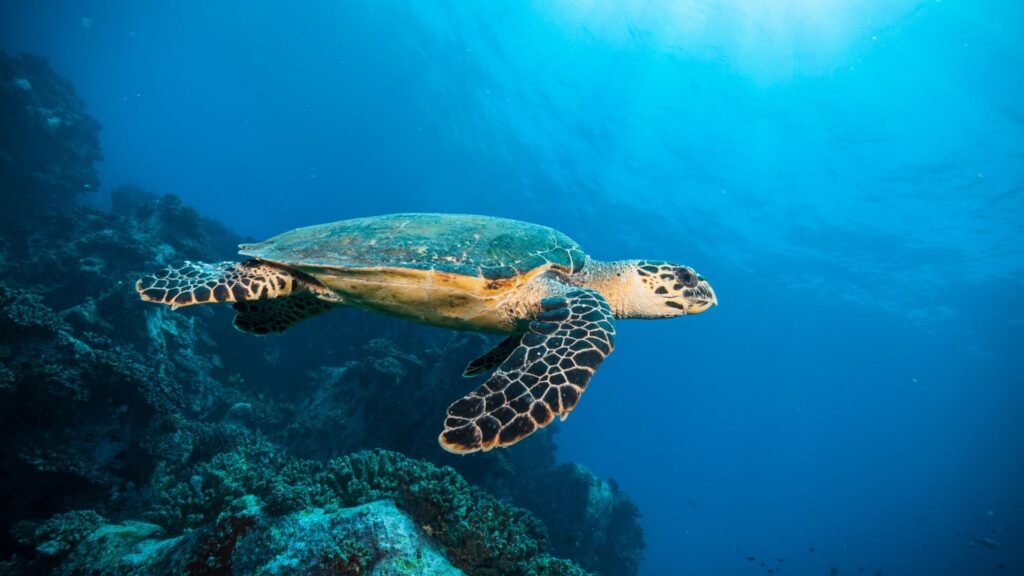Marine Conservation
Madagascar
Protect fragile reef ecosystems and gain hands-on experience in one of the world’s most biodiverse marine environments.
Overview
Duration
4-12 Weeks
Minimum Age
18+
Start Dates
1st & 3rd Monday of every month
Fees From
$2,274 USD
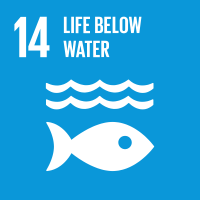
UN SDGs
The main UN Sustainability Goal of this program focuses on SDG 14: Life Below Water through coral reef surveys, marine species monitoring, and habitat protection. Additional goals such as SDG 15: Life on Land, SDG 13: Climate Action, SDG 12: Responsible Consumption and Production and SDG 4: Quality Education are also incorporated into this program.
What You'll Be Doing
Volunteers play an active role both in and out of the water. Training is provided for all survey methods. Activities include:
Key tasks may include:
- Fish and invertebrate identification surveys
- Coral reef health monitoring
- Artificial reef construction and maintenance
- Data entry
- Beach clean-ups
- Environmental education within the local communities
All activities are designed to be ethical, non-invasive, and focused on contributing to broader conservation goals.
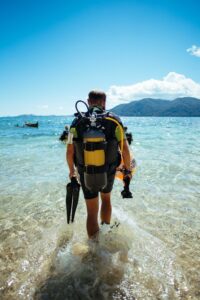
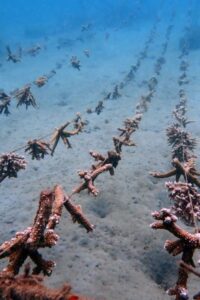
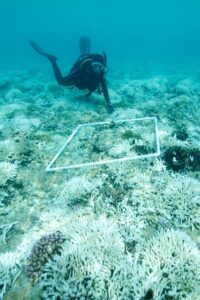
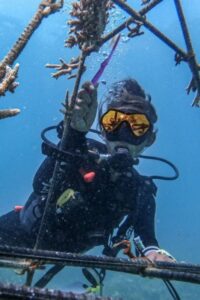
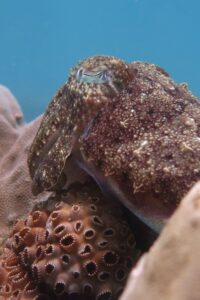
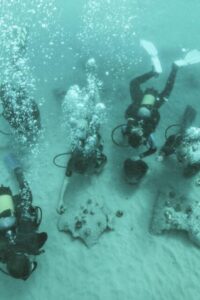
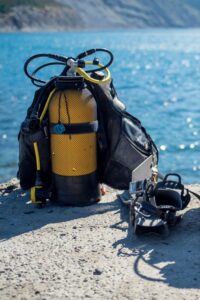
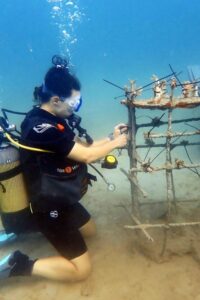
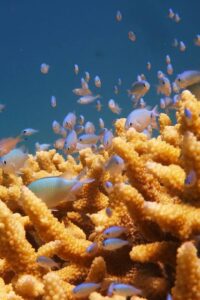
Why It Matters
Madagascar is home to some of the world’s most biodiverse reef systems, but they’re increasingly threatened by overfishing, coral bleaching, and marine pollution. With limited conservation infrastructure and baseline data available, this program supports critical reef monitoring efforts and promotes local marine stewardship.
Your involvement helps generate essential data on reef health, fish populations, and ecosystem changes, while also supporting educational outreach in nearby communities.
A Day in the Life
Typical Weekday Schedule:
Please note that activities vary depending on tides, weather, and team priorities.
- Mornings: Reef survey dive, data entry, study sessions
- Afternoons: Artificial reef construction, beach cleans, lectures
- Evenings: Briefings, volunteer socials, and/or time to relax
Weekends are free for relaxation, island excursions, or optional activities like hiking, whale watching, or cultural exchange.
Your Impact
By participating in this program, your involvement helps:
- Track changes in reef health and fish diversity
- Create new reef systems
- Remove harmful waste from marine habitats
- Raise awareness of marine issues in local communities
- Support long-term conservation efforts with measurable data
Where You'll Be Staying
Our base camp on Nosy Komba offers direct access to a vibrant house reef and nearby seagrass beds, ideal for daily reef surveys and dive training. Set along Madagascar’s northwest coast, the island is known for its incredible biodiversity, clear waters, and proximity to some of the healthiest coral systems in the region.
Volunteers dive from either the beach or boat, and additional survey sites are accessed based on tides, visibility, and project focus.
Accommodation & Meals
Base Camp
Volunteers stay at our hillside eco-camp on Nosy Komba, surrounded by forest and overlooking the ocean. Accommodation is shared, with wooden bungalows housing 4–6 volunteers per room. Bathrooms offer flush toilets and cold showers, with solar-powered lighting throughout camp.
There is a large main house where volunteer activities take place and a dive deck for gearing up to go scuba diving.
There’s no Wi-Fi on-site, but mobile data works with a local SIM, and Wi-Fi is available in the nearby village of Ampang (30-minute walk).
Meals
Three meals a day are prepared by the on-site cook using fresh, local ingredients. Meals are rice-based with vegetables and beans, and occasionally include fish, chicken, or zebu. Breakfasts may include fruit, bread, eggs, or crepes.
Vegetarian meals are available. Vegan options are limited, so additional snacks or supplements will be required.
Who Can Join
This program is open to anyone passionate about the ocean and marine conservation. No previous experience is needed but you must be a PADI Advanced Open Water diver or willing to complete the course on-site before starting survey work.
Requirements:
- Age 18+
- PADI Advanced Open Water certification (or complete on-site at extra cost)
- Comfortable swimming and snorkelling in open water
- Moderate fitness level
- Respect for marine ecosystems and conservation protocols
This program is best suited to divers, marine biology students, ocean lovers, and anyone keen to gain practical conservation skills and contribute to reef protection.
Program Pricing
Your program fees directly support the operations of our local team in Madagascar and the services we provide to ensure your experience is meaningful, safe, and well-supported.
Outreach Overseas Offer
- Pre-departure support
- Volunteer information pack
- Assistance with trip logistics
- Emergency assistance
- Program quality assurance
- Certificate of participation
What's Included
- Airport Pick-Up (between 7am-7pm)
- Shared accommodation
- Three meals per day
- On-site orientation and training
- Daily program support
- Equipment (where possible)
What's Excluded
- Flights
- Travel & health insurance
- Visa fees
- Background check (if required)
- Personal spending money
- Excursions
All program fees exclude a one-time non-refundable $199 confirmation fee, which is payable upon acceptance into the program. Your remaining balance (program fees and any optional add-ons) is only due 60 days before your start date. This can be paid in instalments or as a lump sum.
| Duration | Program Fee |
|---|---|
| 4 Weeks | $2,075 |
| 5 Weeks | $2,490 |
| 6 Weeks | $2,905 |
| 7 Weeks | $3,320 |
| 8 Weeks | $3,735 |
| 9 Weeks | $4,150 |
| 10 Weeks | $4,565 |
| 11 Weeks | $4,980 |
| 12 Weeks | $5,395 |
Diving Courses
To participate in our Marine Conservation program, volunteers must be confident swimmers and hold both PADI Open Water and Advanced Open Water dive certifications. If you’re not yet certified, you’re welcome to complete the courses before arrival or join our on-site training program in Madagascar.
Certification costs (if completed in Madagascar):
- PADI Open Water: $440
- PADI Advanced Open Water: $340
Please note: If you choose to certify in Madagascar, you’ll need to purchase and complete the PADI e-learning theory modules online separately before arrival. When applying, please let us know whether you already hold the necessary certifications or plan to complete them on-site.
Ready to Make a Real Impact?
Jump into the water and help protect Madagascar’s fragile marine ecosystems. Whether you’re collecting reef data, removing debris, or supporting coral health, your time underwater makes waves above it.
Choose your next step:
Apply Now to start your application and secure your spot in the program.
Enquire Here to get all the details you need from our team before you commit.
Good to Know Before You Go
What date should I arrive, and how do I get to the program location?
We recommend arriving in Nosy Be, Madagascar on the Saturday or Sunday before your program start date (which is always a Monday). Once you land, our friendly local team will be waiting to greet you and assist with the short boat transfer to Nosy Komba, where the project base is located. Full arrival instructions will be sent in your pre-departure pack.
Please book your international flight to Fascene Airport (NOS) in Nosy Be. This is the closest airport to our program base and is well-connected along various flight routes. Most volunteers connect via Airlink from Johannesburg, Air Madagascar from Antananarivo, or Ethiopian Airlines via Addis Ababa.
We suggest booking your return flight for the Sunday after your final program week. The local will help coordinate the boat transfer back to Nosy Be in time for your flight, and can advise on reliable transport back to the airport. If you’d like to pre-plan your departing transport, you are welcome to select this add-on when submitting your application. If you’d prefer to explore Madagascar further before leaving, we’re happy to help you plan onward travel too!
What is the accommodation like and who will I be staying with?
You’ll stay in a rustic beachfront volunteer camp nestled against the hillside forest on Nosy Komba. Rooms are shared, gender-separated, and dorm-style with bunk beds. Facilities are basic but comfortable, including cold-water showers, flush toilets, and solar-powered lighting.
There’s no Wi-Fi at camp, but local SIM cards and data can be purchased in town and used for internet access.
Three meals a day are prepared by the local kitchen team, offering a mix of Malagasy and Western-style food.
You’ll share camp life with a diverse group of like-minded volunteers from around the world. Most volunteers are aged between 18 and 30, but we welcome volunteers of all ages (18+). We’ve had university students, career-breakers, solo travellers, and even couples join us. People join from all over the world, all with a common desire to make a difference and explore Madagascar in a meaningful way.
What does a typical volunteer week look like?
Volunteer weeks run Monday to Friday, with a mix of hands-on project work and skills-based training. Days usually start early, especially for marine and turtle projects, which work with tide schedules and include survey prep, fieldwork, and data entry.
Afternoons may involve community outreach, environmental education, or beach cleanups, depending on your program.
Evenings are yours to relax, swap stories, play games, or attend optional Malagasy language or conservation talks.
Weekends are free, giving you time to explore nearby islands, hike through rainforests, visit the markets of Hell-Ville, or simply chill on the beach.
Are there any requirements to join this program?
This program is open to volunteers aged 18 and over. No previous experience is required! All you need is a positive attitude, a willingness to learn, and a passion for making a difference. Volunteers should be comfortable with outdoor work, swimming in the ocean, and be able to manage uneven terrain, stairs, and basic living conditions.
If you’re joining the marine conservation project, you’ll need to be PADI Advanced Open Water certified, but don’t worry if you’re not there yet! You can complete your certification with the dive instructor on camp at an additional cost. We’ll guide you through the process every step of the way.
Is it safe to volunteer and travel in Madagascar?
Madagascar is generally a safe country to visit, especially in the Nosy Be region. We have on-site staff support 24/7 and follow strict protocols to keep volunteers safe. Nosy Komba is a peaceful island with a strong community spirit and low crime rates.
In case of emergencies, there is access to medical care on Nosy Be, just a short boat ride away.
You’ll be thoroughly briefed on safety and cultural awareness when you arrive, and we’re always here to support you throughout your stay.
What vaccinations or health precautions should I take?
While there are no mandatory vaccinations required to enter Madagascar or join the program, certain vaccinations (like Hepatitis A and Typhoid) and malaria prevention are recommended. Please come prepared with mosquito repellent and long clothing for the evenings.
We strongly advise speaking with a travel health clinic or your doctor well in advance of your trip to get personalised advice based on your medical history.
Can I join with a friend, family memeber or partner?
Absolutely! Friends, couples, or even small groups are welcome to apply together. Just let us know in your application and we’ll do our best to place you in the same room and on the same project.
That said, many volunteers arrive solo and quickly build lasting friendships. The camp is a highly social, supportive environment.
How much does it cost and what's included?
Program fees start from $2,274 for 4 weeks, including all essential program costs and the one-time non-refundable $199 Outreach Overseas confirmation deposit. Outreach Overseas keeps costs low by partnering directly with grassroots organisations and operating as a small, purpose-driven team. Our pricing supports both volunteers and the project on the ground.
Included in your fees:
- Shared accommodation
- Three meals per day
- Airport pickup and drop-off
- Full project training and supervision
- 24/7 in-country support
- Outreach Overseas pre-departure guidance
You’ll also receive a volunteer handbook and packing guide to help you prepare.
Will I have time to travel or explore during my stay?
Yes, and we highly recommend it! Madagascar is an incredible country to explore. From lemur-filled forests to white sand beaches, there’s so much to see. Go snorkelling in coral reefs, hike up volcanic peaks, visit lemur reserves, or take boat trips to paradise islands like Nosy Iranja. Our local team can offer tips and connect you with trusted tour guides if you’d like to explore over the weekends or travel further pre- or post-program.
When is the best time of year to join this program?
Madagascar’s northwest coast is warm year-round, but the dry season (April to November) offers the best weather and calmest seas, which is ideal for diving, snorkelling, and outdoor work.
If you’re keen on marine life, whale shark season (September–December) and turtle hatching season (December–March) are incredible times to visit.
No matter when you come, you’ll experience Madagascar’s breathtaking biodiversity and vibrant culture.
How to Apply
Step 1: Choose Your Program
Explore our programs and find the one that fits your passion and goals.
Step 2: Submit an Application
Complete our quick and easy online application form to start the process.
Step 3: Confirm Your Spot
Pay your $199 confirmation deposit upon your acceptance.
Step 4: Make an Impact
Travel to your destination, join your team, and begin your volunteer journey.
Explore Similar Volunteer Opportunities
English Teaching
- 1-12 Weeks
- 18+
- $619 USD
Forest Conservation
- 1-12 Weeks
- 18+
- $619 USD
Turtle Conservation
- 1-12 Weeks
- 18+
- $619 USD
Stay in the Loop
Want to know when new destinations and programs launch? Sign up for updates and be the first to hear about our opportunities to travel with purpose.

